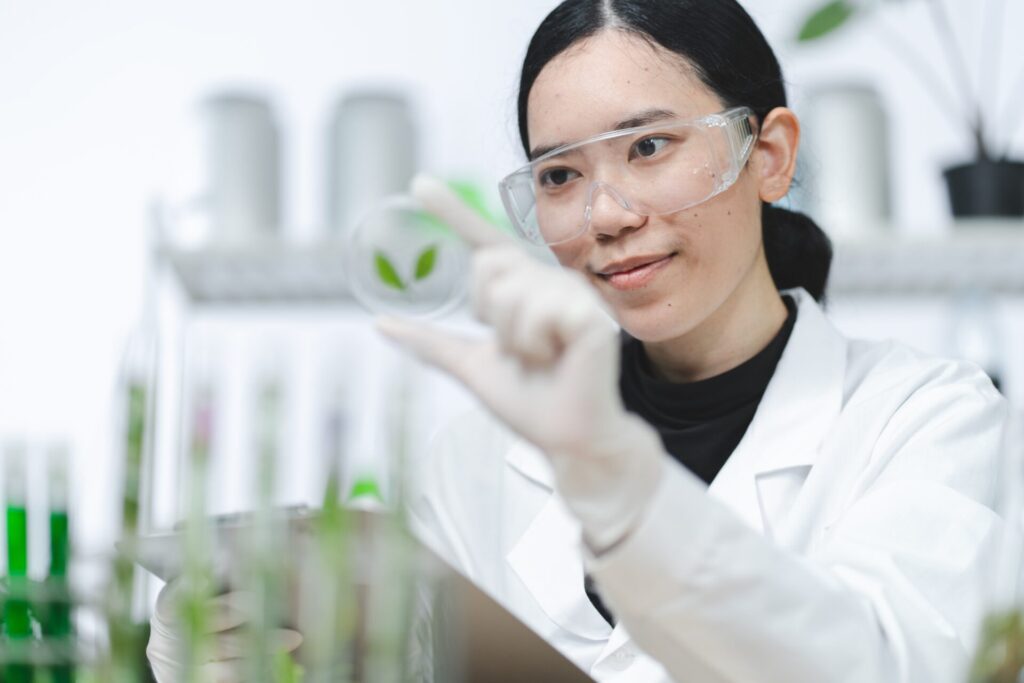
Among the most exciting themes for IELTS candidates in 2025 is IELTS Science and Innovation. This theme covers everything from space exploration and medical research to renewable energy and artificial intelligence. It appears across all four test sections, challenging students to handle academic vocabulary while linking global developments with local examples from Thailand. Mastering this area not only improves test performance but also prepares students to discuss ideas that matter for the future.
Why IELTS Science and Innovation Matters
Science and technology affect every part of life. In Thailand, projects in renewable energy, smart agriculture, and digital health are becoming national priorities. These subjects also appear in IELTS tasks because they test a candidate’s ability to explain abstract concepts, weigh arguments, and analyse both benefits and drawbacks. When Thai students prepare for IELTS Science and Innovation, they are learning to connect classroom English with the language of progress and policy.
How the Theme Appears in the Test
Writing Task 2 regularly uses science-based debates. For example:
-
Some people think governments should spend more on scientific research than on social welfare. Discuss both views and give your opinion.
-
Do you agree or disagree that the main aim of science should be to improve people’s lives?
Reading passages may describe breakthroughs in biotechnology or renewable energy. In 2025, students in Hua Hin and Bangkok reported texts about climate-smart farming and innovation hubs in Asia.
Listening sections often feature lectures on genetics, robotics, or new materials. Candidates must identify cause-and-effect relationships, understand examples, and catch technical terms.
Speaking tasks push students to explain ideas in detail:
-
Describe a scientific innovation you find useful.
-
Do you think science makes life easier or more complicated?
-
How should governments encourage young people to study science?
For Part 3, examiners often raise questions about whether innovation creates fairness or inequality, forcing candidates to think critically and use precise vocabulary.
Real Experiences from Thai Students
Thai candidates often remember the challenge of speaking about science in a natural way.
-
Ploy, from Bangkok, had to describe a modern invention in Speaking Part 2. She chose to talk about mobile payment apps linked to AI. Her examiner then asked whether IELTS Science and Innovation topics always benefit developing countries, a question that pushed her to compare Thailand with Europe.
-
Anan, in Chiang Mai, faced a Reading passage on renewable energy. He highlighted difficult words like geothermal, biofuel, and carbon capture. After preparing with sample texts, he found he could read more quickly and answer matching-heading questions more accurately.
-
Somsak, a medical student, wrote a Writing Task 2 essay on space exploration versus healthcare funding. He compared Thailand’s medical innovations with the global space race, which gave his essay balance and originality.
These real experiences show how IELTS Science and Innovation is not only theoretical but also connected to real issues students see in Thailand.
Vocabulary for IELTS Science and Innovation
Key terms include:
-
Breakthrough – an important new discovery.
-
Cutting-edge – the most advanced stage of development.
-
Renewable energy – power from natural sources such as sun, wind, or water.
-
Genetic engineering – changing genes for medical or agricultural purposes.
-
Artificial Intelligence (AI) – computer systems able to make decisions and learn.
-
Ethical dilemma – a moral problem caused by new technology.
-
Sustainability – balancing progress with environmental care.
-
Innovation hub – a place where new ideas and inventions grow.
These words help candidates raise their score in both writing and speaking. Using them naturally and accurately is essential for success in IELTS Science and Innovation.
Tips for Thai Students
-
Link ideas to Thailand – use examples like smart farming, Bangkok’s transport technology, or renewable energy projects.
-
Balance your arguments – always show both sides in essays before giving your opinion.
-
Practise listening with science content – short lectures, news, and podcasts will train your ear.
-
Be ready for abstract speaking – don’t only describe inventions, but also analyse their impact on society.
Final Thoughts
IELTS Science and Innovation is one of the most important themes of 2025. It prepares candidates to handle academic vocabulary, express complex arguments, and connect ideas to their own context in Thailand. Students who practise this theme learn more than just English—they gain the skills to talk about the future of science, society, and progress.
If you are aiming for a high band score, invest time in mastering IELTS Science and Innovation. With preparation, vocabulary practice, and confidence, this theme can become one of your strongest areas in the exam
Taking IELTS with the British Council provides candidates with trusted support and worldwide recognition. As one of the most established providers of the test, the British Council offers flexible test dates, secure venues, and access to high-quality preparation materials. Candidates benefit from a global reputation for reliability, making their IELTS score widely accepted by universities, employers, and governments around the world. In Thailand, the British Council has long supported students in reaching their international goals through fair and professional exam delivery. Learn more about the benefits of choosing the British Council for IELTS: British Council IELTS – Why Take the Test






